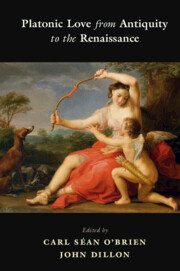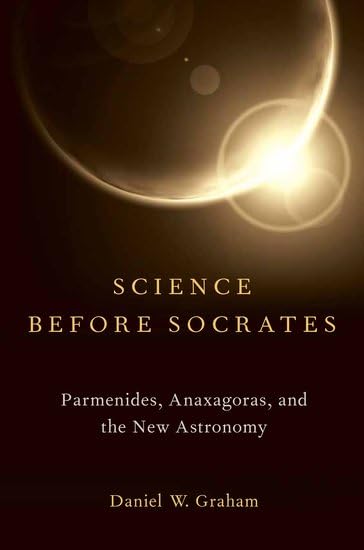Hipparchia of Maroneia: The Cynic Philosopher Who Defied Convention
Introduction to Hipparchia of Maroneia
Hipparchia of Maroneia was a remarkable figure in ancient Greek philosophy, known for her bold defiance of societal norms and her unwavering commitment to the Cynic way of life. Born around 350 BCE in Maroneia, Thrace, she is one of the few female philosophers from antiquity whose life and teachings have been documented. Hipparchia's story is particularly fascinating because she chose to abandon a life of privilege to embrace the austere and often controversial lifestyle of the Cynics, a philosophical school that rejected conventional values in favor of living in accordance with nature.
Hipparchia's decision to become a Cynic was not merely a personal choice but a radical act that challenged the deeply entrenched gender roles of her time. In ancient Greece, women were expected to lead lives of domesticity, confined to the home and excluded from public intellectual life. By stepping into the male-dominated world of philosophy, Hipparchia shattered these expectations and became a symbol of female empowerment and intellectual freedom.
The Cynic Philosophy: A Brief Overview
To understand Hipparchia's life and choices, it is essential to grasp the core tenets of Cynicism. Founded by Diogenes of Sinope, the Cynic school advocated for a life of simplicity, self-sufficiency, and freedom from societal conventions. Cynics believed that true happiness could only be achieved by living in harmony with nature, free from the artificial constraints of wealth, power, and social status.
Cynics were known for their provocative behavior, often deliberately flouting social norms to demonstrate the absurdity of conventional values. Diogenes, for example, famously lived in a tub and carried a lamp in broad daylight, claiming to be searching for an honest man. This radical approach to philosophy was intended to shock people into questioning their assumptions and reevaluating their lives.
Hipparchia embraced these principles wholeheartedly, adopting the Cynic lifestyle with a fervor that matched that of her male counterparts. Her commitment to the philosophy was so profound that she became one of its most prominent practitioners, earning the respect and admiration of her peers.
Hipparchia's Early Life and Conversion to Cynicism
Hipparchia was born into a wealthy and influential family in Maroneia, a city in Thrace. Her upbringing would have been one of comfort and privilege, with access to education and the finer things in life. However, from an early age, Hipparchia exhibited a keen intellect and a rebellious spirit that set her apart from her peers.
Her introduction to Cynicism came through her brother, Metrocles, who was a student of Crates of Thebes, a prominent Cynic philosopher. Crates was a follower of Diogenes and had gained a reputation for his unconventional lifestyle and teachings. Through her brother, Hipparchia became acquainted with Crates and was deeply influenced by his philosophy.
Hipparchia's fascination with Cynicism quickly grew into a passionate commitment. She was particularly drawn to the idea of living a life free from societal constraints, where one could pursue virtue and wisdom without being bound by material possessions or social expectations. This attraction was so strong that she decided to abandon her privileged life and join Crates in his ascetic lifestyle.
The Unconventional Marriage of Hipparchia and Crates
Hipparchia's decision to marry Crates was as unconventional as her choice to become a Cynic. In ancient Greece, marriages were typically arranged for political or economic reasons, with little regard for personal
The Unconventional Marriage of Hipparchia and Crates
Hipparchia’s decision to marry Crates was as unconventional as her choice to become a Cynic. In ancient Greece, marriages were typically arranged for political or economic reasons, with little regard for personal affection or philosophical alignment. Yet Hipparchia defied tradition by insisting on marrying Crates, despite objections from her family and society at large. Legend has it that when her parents protested, she boldly declared that she would take her own life if she could not wed him. Crates, in response, famously disrobed in front of her and said, "Here is your groom and all his possessions. Decide accordingly." This stark display of Cynic simplicity only strengthened Hipparchia’s resolve.
Their marriage became a living embodiment of Cynic values. They rejected material wealth, lived on the streets of Athens like other Cynics, and reportedly engaged in philosophical debates in public spaces. Most shockingly, ancient sources claim that Hipparchia and Crates consummated their marriage in public—a deliberate rejection of social norms and an assertion that natural acts should not be hidden. This act was not mere scandalous defiance but a philosophical statement: if human actions were natural and virtuous, there was no need for shame or concealment.
Hipparchia’s Philosophical Influence
Though few of her own writings survive, Hipparchia emerged as a significant philosophical voice in her own right. She engaged in debates with prominent thinkers of her time, including Theodorus the Atheist, who reportedly mocked her for abandoning traditional women’s work. Her sharp retort—"Do you think I have made the wrong decision if I devote the time I would have spent on weaving to study instead?"—highlights her rejection of gendered roles. Cynicism’s radical egalitarianism allowed her to argue that wisdom, not biology, defined a person’s worth.
Her contributions to Cynic thought likely extended beyond debates. Some historians suggest she may have written philosophical treatises, though these texts are lost. What remains are anecdotes that showcase her quick wit and unwavering commitment to Cynic principles. In one famous exchange, when asked why she wore men’s clothing, she replied, "Why do you cut your beard with iron?"—implying that social conventions around clothing were as arbitrary as those around grooming.
Challenges and Criticism
Hipparchia’s lifestyle inevitably invited backlash. Ancient critics accused her of shamelessness, indecency, and even madness. The comic poet Menander wrote scathing verses mocking her, and later authors like Diogenes Laërtius recorded skepticism about her choices. Yet these criticisms often reveal more about the prejudices of her contemporaries than about Hipparchia herself. Her defiance forced Athenian society to confront its assumptions about gender, morality, and the role of philosophy in daily life.
Despite the hostility, Hipparchia’s legacy endured precisely because she refused to conform. She proved that philosophy was not confined to wealthy men debating in private halls—it could be lived openly, by anyone, regardless of gender or social standing. Her partnership with Crates also demonstrated that marriage could be a union of equals bonded by shared ideals rather than property or status.
Life as a Cynic: Practicing What She Preached
Hipparchia’s daily life was a continuous exercise in Cynic principles. She and Crates slept in porticoes and public spaces, owned nothing beyond their simple cloaks and staffs, and begged for food—not out of necessity, but as a rejection of materialism. This asceticism was not self-punishment; it was freedom. By untethering herself from possessions, she removed the distractions that kept people from pursuing virtue.
Ancient anecdotes describe her eating, sleeping, and debating in the open, indifferent to weather or social censure. One story tells of her attending a symposium (traditionally a male-only gathering), where she silenced critics by proving her intellectual equality. Another account describes her calmly watching an argument turn violent, remarking that philosophers should not fear sticks and stones when their words held truth. Her resilience in the face of mockery and physical threat cemented her reputation as a true Cynic.
The Broader Impact of Her Choices
Hipparchia’s life had ripple effects beyond her immediate circle. Her example inspired other women to explore philosophy, albeit cautiously. While most female philosophers of antiquity operated within safer frameworks (like Pythagoreanism’s private study groups), Hipparchia’s public defiance opened doors for later thinkers like Theano and Arete of Cyrene. Roman-era Stoics, including Musonius Rufus, would later cite her as proof that women could excel in philosophy.
Moreover, her marriage to Crates became a template for later philosophical partnerships. The idea that spouses could be intellectual companions—rare in antiquity—gained traction in part due to their example. Centuries later, Christian ascetics would adopt similar models of egalitarian, vow-driven unions.
Controversies and Misinterpretations
Over time, Hipparchia’s story was softened or distorted by commentators uncomfortable with her radicalism. Some later biographers framed her as a lovestruck girl who followed Crates on a whim, downplaying her agency. Others sanitized her actions, omitting references to public displays of affection or poverty. These revisions reflect attempts to assimilate her into more palatable narratives about women’s roles.
Modern scholars, however, recognize her as a deliberate thinker who chose Cynicism with full awareness of its challenges. Her life was not a rebellion for its own sake, but a coherent application of philosophy. As she reportedly said: "What is shameful for me cannot be proper for you." This inversion of societal judgments captures the essence of her thought—moral integrity, not convention, defines right and wrong.
As we await the concluding section of her story, it’s clear that Hipparchia’s defiance was not just personal but transformative. Her legacy lies in proving that philosophy could—and should—be accessible to all, regardless of gender or birth.
>
Hipparchia's Legacy and Influence on Philosophy
Hipparchia's impact on philosophy extends far beyond her lifetime, resonating through the centuries as a testament to the power of intellectual courage. Her life and teachings challenged the very foundations of ancient Greek society, forcing contemporaries to reconsider their assumptions about gender, social roles, the nature of happiness, and the purpose of philosophy itself. While she lived in a time when women were largely excluded from philosophical discourse, her example demonstrated that wisdom and virtue were not the exclusive domain of men.
One of Hipparchia's most enduring contributions was her demonstration that philosophy could be lived rather than merely discussed. Unlike many philosophers who theorized about virtue while maintaining comfortable lives, Hipparchia embodied her principles completely. This radical commitment to philosophical practice became a hallmark of Cynicism and influenced later philosophical movements, particularly Stoicism, which would adopt the Cynic emphasis on living according to nature and virtue.
The Cynic School After Hipparchia
Following Hipparchia's death, the Cynic tradition continued to develop, though it never became as institutionalized as other philosophical schools. Her influence, however, remained significant. Later Cynics often cited her as an exemplar of the Cynic way of life, particularly in their arguments against conventional social norms. The school's emphasis on personal freedom, simplicity, and authenticity can be traced back to the principles that Hipparchia so vividly demonstrated in her own life.
Interestingly, while Cynicism as a formal school eventually faded, its core ideas found new life in various philosophical and religious movements. The early Christian ascetics, for example, shared the Cynics' rejection of material wealth and social status, though they did so for different reasons. Similarly, elements of Cynic thought can be seen in certain strands of modern existentialism and anarchism, particularly in their critiques of social convention and their emphasis on individual authenticity.
Hipparchia in the Modern Imagination
In recent years, there has been renewed interest in Hipparchia's life and philosophy. Feminist scholars have reclaimed her as an early example of feminist thought, noting how her rejection of gender roles anticipated many contemporary feminist critiques. Her life story has inspired novels, plays, and academic studies, each exploring different aspects of her philosophy and its relevance to modern concerns.
Contemporary philosophers have also found value in Hipparchia's approach to philosophy. In an age of academic specialization and professional philosophy, her example reminds us that philosophy was originally conceived as a way of life rather than merely an academic discipline. This has led to a growing movement of "practical philosophy" that seeks to apply philosophical principles to everyday living, much as Hipparchia did.
Lessons from Hipparchia's Life
Several key lessons emerge from studying Hipparchia's life and philosophy that remain relevant today. First is the importance of authenticity - living according to one's principles regardless of social pressure. In a world that often values conformity, Hipparchia's example reminds us that true fulfillment comes from being true to oneself.
Second is the radical equality inherent in her philosophy. By demonstrating that women could be philosophers and that virtue was not dependent on social status, Hipparchia challenged the hierarchies of her time. This egalitarian impulse continues to inspire those working for social justice today.
Third is the value of simplicity. In an era of consumerism and environmental crisis, Hipparchia's rejection of material excess offers a powerful alternative vision of the good life. Her philosophy suggests that true wealth lies not in possessions but in self-sufficiency and freedom from unnecessary desires.
Hipparchia's Enduring Questions
Hipparchia's life raises profound questions that continue to challenge us. What does it mean to live a good life? How much should we conform to social expectations? What is the relationship between our philosophical beliefs and our daily actions? These questions are as relevant today as they were in ancient Greece, and Hipparchia's example provides a compelling starting point for considering them.
Her story also forces us to confront our own assumptions about gender and philosophy. Why were there so few female philosophers in antiquity? What barriers still exist today that prevent women from fully participating in philosophical discourse? Hipparchia's life suggests that the answers to these questions may lie not in women's intellectual abilities, but in the social structures that have historically excluded them.
Conclusion: The Timeless Relevance of Hipparchia
Hipparchia of Maroneia was far more than an historical curiosity. She was a philosopher who lived her truth with remarkable consistency, challenging the conventions of her time and demonstrating that philosophy could be a transformative force in human life. Her legacy reminds us that philosophy is not just about abstract ideas, but about how we choose to live.
In an age of increasing complexity and social fragmentation, Hipparchia's simple yet radical philosophy offers a compelling alternative. Her emphasis on authenticity, equality, and simplicity provides a framework for navigating the challenges of modern life. While we may not choose to live exactly as she did, we can learn from her courage, her commitment to principle, and her willingness to question the status quo.
As we reflect on Hipparchia's life and philosophy, we are reminded that the most profound philosophical truths are often those that challenge us to examine our own lives. In this sense, Hipparchia's greatest legacy may be her ability to inspire us to ask the difficult questions about who we are and how we should live - questions that remain as vital today as they were in ancient Greece.














Comments